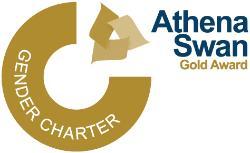Maternity, paternity and carer group
Published: 14 March 2018
What are this group's main achievements on behalf of parents and carers in IHW, and what's in the pipeline for the coming months? Group chairs Jana Anderson and Elise Whitley explain.
What are the IHW Athena Swan maternity, paternity and carer working group's main achievements of recent years, and what's in the pipeline for the coming months?

Our group monitors data on gender-sensitive issues linked to staff who are parents and staff carers. This includes data on the uptake of maternity, paternity, adoption and parental leave; the uptake of Keeping in Touch (KIT) days and Shared Parental Leave in Touch (SPLIT) Days that are available to staff; and applications for flexible working.
In addition, we have successfully developed a range of initiatives including:
- clarification of maternity leave and pay for staff on fixed term and open-ended contracts with funding end date;
- developing guidance and etiquette for contacting staff while on leave;
- allowing unpaid parental leave to be taken as single days rather than in week blocks.
We also introduced a maternal and paternal buddying scheme for new and expectant parents, which is being reviewed and will shortly become the responsibility of the new IHW Maternity and Paternity Champion.
The group has also worked on issues related to staff carers. In the absence of a university-wide staff carer policy, we developed internal IHW guidelines and campaigned for a staff carer policy, which was finally launched in January 2020 and applies to all university staff with carer responsibilities. Upon registration on the HR portal, staff with caring responsibilities are now eligible for dedicated support, including five days of paid and up to four weeks of unpaid carers leave.
Going forward, our focus is to monitor the uptake of carers leave, and improve the support for our staff with parenting and caring responsibilities even further, for example, by finalising the launch of two peer support schemes – the maternity/paternity champion for new parents and a carer buddy scheme for staff carers.
Group chairs
Jana Anderson
Research Fellow (Public Health)
Jana.Anderson@glasgow.ac.uk
Elise Whitley
Medical Statistician (MRC/CSO Social & Public Health Sciences Unit)
Elise.Whitley@glasgow.ac.uk
First published: 14 March 2018
<< October 2021


